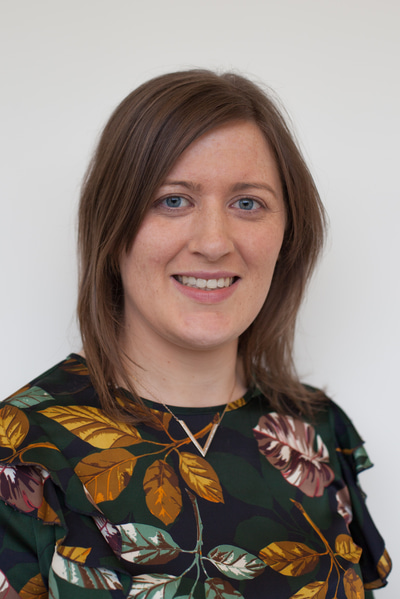- OT
- Life in practice
- Practitioner stories
- My locum life
Locum optometrist guide
My locum life
Locum optometrists working in a diverse range of roles give their insight on the unique challenges and rewards of different areas of practice

14 April 2023
Working as a locum optometrist gives the practitioner an opportunity to build a portfolio of roles.
There is potential to balance locum work at High Street practices with part-time roles working for a hospital, university or eye care charity.
The locum optometrist can tailor the roles they take up to their own unique strengths and interests.
But what is involved in some of the more specialist roles that are available to a locum optometrist? How do you know if you have the skillset that is needed?
OT approached five locum optometrists to learn about a diverse range of roles – from hospital work to professional affairs and domiciliary care.
You had me at hospital
Alongside her locum work, Krupa Mistry spends three days a week as a senior optometrist within the hospital eye service.
Alongside core services, such as paediatrics and low vision, Mistry performs extended roles – working within the pre and post-operative cataract service, as well as the corneal service and eye casualty.
“As I am involved in a variety of different clinics, a typical day can vary week to week,” she told OT.
“Most weeks include paediatrics, which allows me to supervise our current pre-registration optometrists, and cornea,” Mistry added.
Turning to the advantages of hospital work, Mistry shared that she always feels like she is learning because of the variety of eye conditions that she sees.
“It is an environment where you progress with your clinical skills whilst working alongside a large team,” she said.
Working within a teaching hospital, Mistry has opportunities to attend and present at educational meetings among the ophthalmology team.
Being able to adapt to challenging situations is a key skill when working in a hospital environment, Mistry shared.
“A proactive nature and a willingness to learn is something I also think is needed,” she said.
Mistry noted that hospital work may seem daunting to a locum optometrist – particularly if they have not done any hospital work previously.
“As long as you are willing to adapt in a fast-paced environment and would like to progress your clinical skills, hospital optometry is the place for you,” she advised.
Home is where the eye chart is
Abdul Akram has worked as a locum optometrist for the past 15 years, mainly working in the domiciliary sector.
While he is based in the Midlands, Akram has worked across the country, from Cornwall to Bristol and Newcastle.

“The patient demographic is mainly older patients, but we are now seeing more patients who are from a younger age group. I would say it is 90% older and 10% younger patients,” he shared.
For Akram, the challenge of caring for patients who have a different range of requirements is rewarding.
“I enjoy getting out on the road and visiting patients in their homes through domiciliary care,” he said.
“As a locum, I also enjoy working with different people at Specsavers – and learning from them to develop my own clinical practice,” Akram added.
Akram believes that the care provided by domiciliary optometrists can be transformative. He recalls seeing a patient who had not received a sight test for two decades and was unable to see their television.
“I was able to help. It was life-changing for them,” Akram shared.
When asked about skills that are useful as a domiciliary optometrist, Akram said that it helps to be patient, adaptable and flexible.
“In domiciliary, you need to be caring and patient-focused with good communication skills,” he said.
I enjoy getting out on the road and visiting patients in their homes
Focus on low vision
Optometrist Stephanie Cairns began working as a locum in 2013 after her son was born so she could decide her own working hours.
“I find this flexible way of working suits me and allows me to do mixture of roles,” Cairns shared.
Cairns spends up to two days a week working within optometry practices as a locum, and is employed two days a week as a clinical lead low vision optometrist.
She works for a community based low vision service run by Vision and Hearing Support (Gateshead and South Tyneside).
“Being able to provide practical support and advice to people who are often struggling with their sight loss is very rewarding,” Cairns said.
Strong communication skills are important when working in low vision, Cairns shared.
“Often the standard clinical tests we undertake to assess vision do not really help people understand why they can’t see a step or the food on their plate,” she highlighted.
“Being able to offer simple explanations and relate vision to everyday tasks can be very empowering,” Cairns emphasised.
Some people will only require improved lighting or advice. They may need guidance on how to use the magnifier aids that they already have.
“To work in low vision, you need to be able to listen and to be adaptable. Sometimes what people need is someone to talk to who understands what’s been happening to them and the impact it’s had on their lives,” Cairns shared.
“It also helps to know who you can refer people on to, for wider help, such as the local eye clinic liaison officer or sensory support team,” she said.
A significant portion of Cairn’s work involves identifying people who may be suitable for certification as sight impaired or severely sight impaired and explaining the resources that can be accessed following certification.
She will then generate a referral back to secondary care for a consultant to review.
Working in prisons
Kamalpreet Bains works as a locum optometrist for the Prison Opticians Trust. He conducts eye examinations and dispenses spectacles to prisoners, working closely with other healthcare professionals.
“The most enjoyable part would be the patient feedback. Most of the patients are very grateful for the service we provide,” he told OT.
“The gratitude and patient feedback has rejuvenated my love for my job and my profession,” Bains added.
Bains shared that small things, such as being able to read or watch television, can have a big impact on the day-to-day life of an inmate.
“Every clinic is different – always expect the unexpected. There is always ongoing learning, whether it be clinically from referrals or in terms of the prison regime,” he said.
Treating prisoners with kindness and compassion is key, Bains shared.
“You need to treat everyone as an individual and without judgement,” he highlighted.
The patients he sees may be suffering from mental health issues, missing family or experiencing another cause of stress.
The gratitude and patient feedback has rejuvenated my love for my job
Being able to adapt to difficult environments is important when working in prison, Bains shared.
“Hearing alarm bells, for example, can all be daunting initially. The healthcare department is safe and the prison officers provide the protection we need,” he explained.
Bains emphasised his pride in being able to give back to the community through the work of the Prison Opticians Trust. As well as providing eye care in prisons, the trust provides prisoners with NVQ level training in optical skills and lab work.
The aim is to reduce reoffending by improving the chances of employment following release.
My diary
Locum optometrist Kamalpreet Bains provides insight on his daily routine providing eye examinations to prisoners
Clinics are split into two sessions; morning and afternoon. The morning session is between 9am-12pm and the afternoon session is 1.30-4.30pm.
These sessions work around the prison regime and each clinic runs for around three hours.
Each prison is equipped with a healthcare department, which is almost like a mini hospital with rooms for a GP, nurse, dentist and other healthcare staff.
Patients are collected from their wings and brought into the healthcare department by prison officers.
The clinic ledgers are set up usually a few weeks before and patients can apply using an optician triage form. They are then added to the waiting list. Once an appointment is arranged appointment slips are sent with the detail of clinic, date and time.
The full eye examination and glasses dispense is all completed within the appointment time.
Urgent cases may be referred on the day from prison GP or nurses so they will have to be accommodated.
At the end of each session there is time to send any reports to the GP or process any external ophthalmology referrals.
Professional affairs
Locum optometrist, Marie-Therese Hall, works as a professional affairs consultant for Johnson & Johnson Vision.
Hall shared that every day is different when working in professional affairs. She supports fellow clinicians and support staff through practice visits, online meetings and group continuing professional development (CPD) sessions.
“The rest of the time is spent preparing training sessions, so this could either be writing new CPD sessions or some self-directed learning to ensure I keep up to date with the latest research and insights in the contact lens industry,” Hall said.
For Hall, the variety of the role and working with many different clinicians is rewarding.
“I really value hearing the experiences of others,” she shared.
“Quite often after a CPD session I find myself reflecting on ideas that have been shared, thinking about how I may be able to use this to benefit my patients in practice,” Hall added.

“It’s great to see their skills and confidence grow and develop,” Hall highlighted.
Turning to the skillset that is required in professional affairs, Hall shared that it is important to enjoy meeting and building relationships with new people.
Confidence speaking in front of people is also an asset in the role.
“It’s very different from being in practice – so being able to manage your own time, being self-motivated and being organised is a big help,” Hall observed.
For locum optometrists looking to enter professional affairs, Hall advises considering the areas of optometry that interest them most.
“Consider if there are any additional courses or qualifications available in that area and look for opportunities to network with others,” she said.
This could be by attending continuing professional development sessions, conferences or speaking to a local account manager.
“Keep an eye out in the trade magazines or their websites for any opportunities to get involved,” Hall shared.
Looking for a new role? Locum vacancies are available to view online. AOP members can advertise locum positions free of charge, while locums can also list their availability for work. Optometry Today also lists general vacancies here.


Comments (0)
You must be logged in to join the discussion. Log in